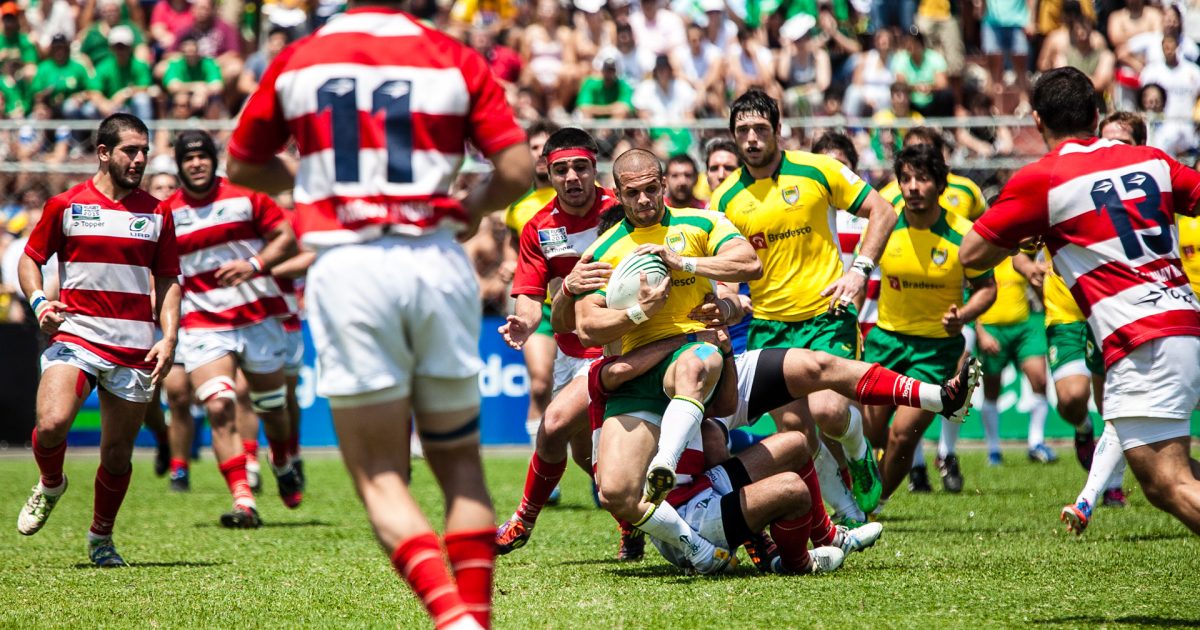The little known international team that Scott Robertson has already coached

Much has been said and written about Scott Robertson’s future as All Blacks’ coach from 2024, his success with the New Zealand Colts, Canterbury and, of course, the Crusaders. About his dancing.
But, how many know of his involvement with an international team at the start of the last decade?
The year was 2011 and at World Rugby’s General Assembly in Auckland prior to the Rugby World Cup final, the Canterbury Rugby Union was invited to make a presentation to the delegates. They basically showcased their rugby services and the need to regain some normalcy and much-needed funds after the devastating earthquake.
Only one Union showed real interest and for the following two years, the Canterbury RU would assist with their coaching and developing a High-Performance programme.
Razor would become one of Brazil’s coaches in 2012 and 2013.
“We not only had Razor; there was also Tabai Matson, Brent Frew, Dallas Seymour coaching our fifteens and sevens, as well as trainers,” recalls Fernando Portugal, Os Tupis fullback for more than a decade, before a five-year stint as national coach until last year.
“He was one of the first to give players a place in the construction of how we wanted to play. So much that when we were doing video analysis, players were presenting to the team, and that was a big shock,” he says, adding that “this made us think in a different way.”
Portugal was in the leadership group, as was Daniel ‘Nativo’ Danielewicz. The former hooker who would work with Portugal in the national coaching set-up after a long-playing career also has fond memories of the time Brazilian rugby came under the support of Canterbury.
“Our first coach was Tabai Matson, with ‘Frewbie’ as assistant; later that first year we had Scott.”
By the time of the 34th Campeonato Sudamericano, back then a yearly event, in July 2012, Robertson was in charge.
The opening game in Santiago, Chile, was against the home team and a creditable 19-6 loss was followed by a huge 111-0 loss against Argentina with mostly dirt-trackers. Three days later, Uruguay would beat them 27-15 under the rain.
“We were still training once a week; they came and prepared the system to perform, with time changing to an environment of daily training, a big difference for all of us,” adds Nativo.
With San Pablo landlocked, there was no surf for Razor until the following year when he took Brazil Sevens to Viña del Mar, in Chile. There, he managed a few waves, but his visits to South America were strictly rugby.
In fact, before joining Brazil, his two previous visits to the region had been with the NZ Colts, winning the inaugural Southern Hemisphere U20 Championship, and when making the try-scoring pass in the 80th minute for a get-out-of-jail win against Los Pumas in 2001, both in Buenos Aires.
After his short sevens stint, a few months later he was back on fifteens’ duty at the 35th Sudamericano, this time in Montevideo, where again there were three losses in three games – 38-22 against Chile, 58-7 against Uruguay and 83-0 against Argentina, a game in which Pablo Matera, who would later play for Robertson’s Crusaders, scored a try.
“Razor came and delivered; he was very professional. I enjoyed his coaching style, and from what I recall, he really tries to generate a good environment for the players. That is big for him.”
“He wanted us to enjoy ourselves, to want to be there, to enjoy the hard training, and then perform,” adds Nativo, who was his skipper in 2013.
Portugal says that whilst there wasn’t sufficient time for deep connections, “Razor would speak about professionalism, daily routines. We were very amateur back then.”
“After team training sessions we would all go to a nearby eatery without showering. He was at us, saying that was not professional, that personal hygiene was important. It was about looking after the mind and the body.”
And it wasn’t rugby 24/7. “He would say that we had to take type for more human things. That is how he leads the Crusaders, ensuring individual freedom.”
As both Portugal and Nativo Danielewicz would progress to coaching, they certainly took things from those days. “Even if I don’t know what, you absorb a lot of things as a player that you take to coaching. Little things that he brought that made the difference…game changers.”
Portugal adds: “For big decision-making moments, he would call the leaders. That is something that always stayed with me.”
“I also understood the importance of the human side, wanting to know the players better, give them a space to grow outside of the game.”
Both have followed Robertson’s success with the Crusaders and were not surprised with his elevation to the All Blacks’ hot seat.
Portugal knows Razor will be good for the All Blacks. “It wasn’t a surprise that he became All Blacks’ coach as I followed his career.”
“He combines his knowledge of the game with giving players their spotlight and he will generate an enjoyable and serene place for the team.”
Nativo adds: “I lived in New Zealand when I was 17 and they are my second favourite team; Razors teams have performed well.”
“My guess is that he will be good for the All Blacks.”
“I really enjoyed the time he coached us, it was a very, very good time; I wish him all the best.”


































































intresting i didnt know that about scott surely that is classed as international experience